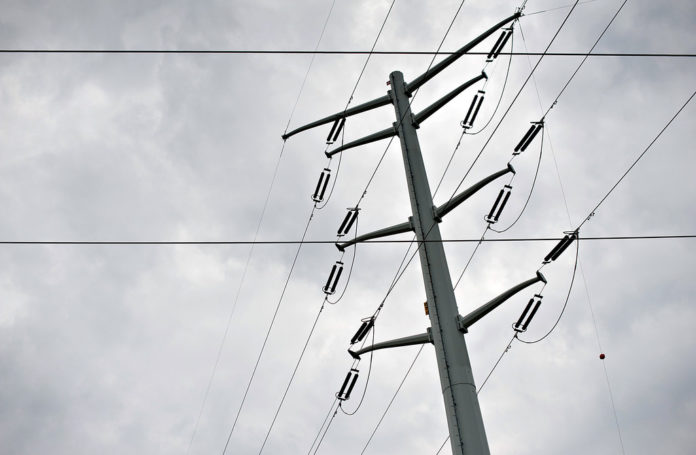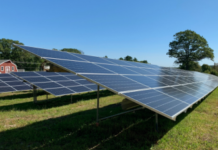
WARWICK – Rhode Island businesses could start paying nearly 20 percent more for electricity starting in October, as a proposed rate hike would increase commercial costs 51.9 percent to 9.3 cents per kilowatt hour.
National Grid Rhode Island, the state’s largest utility, has proposed raising both commercial and residential fixed-electricity rates for the six-month period beginning Oct. 1.
For small-commercial customers, using 1,000 kilowatt hours of electricity per month, electricity costs would increase 19.6 percent – or $33 – to $201 per month. For general commercial customers, using 4,000 kilowatt hours per month, costs would increase 18.5 percent – or $133 – to $851.
The average monthly consumption for commercial customers in Rhode Island during 2015 totaled 5,241 kilowatt hours, according to the U.S. Energy Information Administration.
National Grid, meanwhile, has also proposed raising residential rates to 9.5 cents per kilowatt hour from 6.2 cents, a 52.8 percent increase. A typical customer using 500 kilowatt hours per month would see costs rise to $106 per month from $89 per month, representing a 19.1 percent increase.
Commercial and industrial customers are also eligible for variable rates, which fluctuate month-to-month. Variable rates for commercial users would cost between 6.9 and 11.6 cents per kilowatt hour for the six-month period. Industrial customers rates would change between 5.3 cents and 8 cents per kilowatt hour from October through December. (Industrial rates are calculated on a three-month basis).
On balance, both variable rates are increases from the prior period.
“Winter prices usually increase from summer prices, so that shouldn’t come as a surprise,” said Ted Kresse, National Grid spokesman. “But the increase that we’re seeing now is significant.”
Measured on a year-over-year basis, commercial rates would increase 11.4 percent and residential rates would increase 16.3 percent.
National Grid doesn’t set energy costs, but rather passes them through to customers. The utility, however, does charge a grid-upkeep cost, which isn’t set to increase.
The reason for the rate increases is largely due to macroeconomic energy-market forces realized throughout New England three years ago.
Indeed, ISO-New England, the regional regulator of electricity, holds an auction each year to ensure there’s enough electricity generating capacity for the six-state region three years in advance.
In 2014, three years ago, the auction was complicated, as generating capacity fell short of projected consumer demand for the year 2017-18. Regulators subsequently increased how much power plants would be paid in exchange for providing the generation, a mechanism designed to incentivize power plants to offer up generating capacity, which resulted in a three-fold increase in pricing.
At the time, Rhode Island and Southeastern Massachusetts were especially constrained, so costs skyrocketed for the area. ISO New England has since re-established its regions, known as zones, and Rhode Island doesn’t have as much of a capacity problem, according to the most recent auction.
But the Ocean State is still realizing the consequences of those past constraints.
Rhode Island also suffered from back-to-back frigid winters in 2014 and 2015, which caused a shortfall of natural gas. Power plants were forced to use more expensive electricity-generating commodities such as oil, which drove up electricity costs.
Rhode Island has since had two relatively mild winters, which has helped drive down rates to its current level, a five-year low, but given the past economic forces of the region, future rates are likely to continue to increase, regardless of weather.
“Based on these auctions that happened a few years ago, I think that we may see the potential for higher rates next summer compared to this past summer rates,” Kresse noted.
Eli Sherman is a PBN staff writer. Email him at Sherman@PBN.com, or follow him on Twitter @Eli_Sherman.













This report obfuscates as much as it illuminates regarding future cost trends for business consumers of electricity in Rhode Island. Key information, and a key question for Mr. Kresse are missing. Yes, this stiff rate increase request is based upon a generating capacity shortage that existed in 2014 due to the announced retirement of 3,400 mw by 2017 in the SEMA/RI zone, such generators as Brayton Point which closed in May. As a result, according to ISO New England, “administrative pricing rules were triggered in the SEMA/RI zone due to inadequate supply.” Hence, the record capacity market value of 3.1 billion realized at the February 2014 Forward Capacity Auction. Unreported is that in 2015, 4.1 billion was realized, suggesting that Mr. Kresse was being a triffle evasive when he said, “I think we may see the potential for higher rates next summer.” He should have faced further questioning. But the reporter is also opaque and elusive when he makes the speculative statement, “RI does not have as much of a capacity problem according to the most recent auction.” Hmm… “As much?” In fact, RI’s zone and the entire system has had no capacity problem at all in the last two annual auctions! In the 2016 auction, the total market realized fell back to 3 billion; and in the 2017 auction, the cost fell to 2.4 billion. So abundant was capacity in this year’s auction, that not one new gas-fired power plant was cleared, including the 485 mw unit that Invenergy put up for bid. So there is, in fact, no dire pricing trend ahead as we look past next year and realize what those plunging rates for capacity cost will mean for our electric bills. When the reporter wrote, “given the past economic forces of the region, future rates are likely to continue to increase,” he should have qualified that statement with the information from FCA Auctions 2016 and 2017, and speculated instead on the happy result they likely forecast for business consumers of electricity in the billing years 2019-20 and 2020-21.